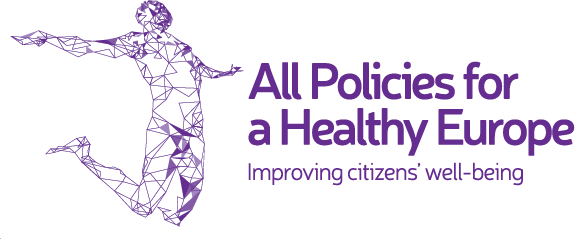Why the climate crisis is also a health crisis
- 22 Nov 2021
- Opinions

By Carla Chiaretti
Environment WG Chair - Head of Policy at EurEau
As the dust settles on the COP26 climate summit in Glasgow, it is worth reminding ourselves about what the leaders, delegates, activists and other stakeholders were discussing so intensely during the two-week event. Of course, it was a summit tackling the climate crisis, a planetary transformation that includes rising sea levels, heatwaves, floods, wildfires, hurricanes and other disasters – all of which are already occurring. But these devastating effects on the environment also represent threats to our health.
Climate change impacts human health and disease in numerous ways. It threatens the essential ingredients of good health – clean air, clean and sufficient water, nutritious food supply, and safe shelter –and has the potential to undermine decades of progress in global health. The disruptions to physical, biological, and ecological systems will intensify existing health threats and create new ones.
Here are just some of the ways climate change affects health:
- The polluted air of burning fossil fuels contains small particles that can induce stroke and heart attacks by penetrating the lungs and heart;
- More carbon dioxide increases the acidity of the air, which then pulls more pollen out from plants - with consequences for those with allergies;
- Rising temperatures mean more heat-related deaths because the human body cannot cope with temperatures above 37°C;
- Climate change both reduces the amount of available food (including what we eat from the sea) and makes it less nutritious;
- It exerts a huge toll on mental health: distress caused by drastic environmental change even has its own name, solastalgia.
The World Health Organization (WHO) issued a special report ahead of COP26, ‘The Health Argument for Climate Action’. “Climate change is resulting in poorer health outcomes, increasing mortality and is a driver of health inequities,” it says. “However, health is well placed to be a significant part of the solution.”
The WHO report lists four key health priorities for leaders: build climate-resilient health systems; develop low carbon sustainable health systems; adapt research for health; and include health priorities in nationally determined contributions. And, after consulting with over 150 organizations and 400 experts and health professionals, the WHO offers 10 recommendations, which include harnessing the health benefits of climate action; reimagining urban environments, transport, and mobility; promoting healthy, sustainable, and resilient food systems; and listening to the health community.
There was some progress on health during COP26. On November 2, the European Union, the US, and over 100 countries joined the Global Methane Pledge, committing to a collective goal of reducing global methane emissions by at least 30 per cent by 2030 compared to 2020 levels, a move not just aimed at a potent greenhouse gas, but one that affects human health, considering its link to respiratory diseases, including asthma.
But beyond COP26, the EU and the world need broad action to protect human health as we navigate the climate crisis.
European businesses are already moving to shape the debate. In 2020, a multi-stakeholder initiative, All Policies for a Healthy Europe, was set up to put people’s wellbeing at the centre of EU policy-making. The coalition gathers a diverse group of NGOs, think-tanks, associations, companies, and individuals to support a healthy, climate-neutral and socially inclusive Europe.
The environment is one of the three key themes for All Policies for a Healthy Europe, and the Environment Working Group has focused on how the EU can protect citizens’ health and well-being, notably through the European Commission’s Zero-Pollution Ambition.
There is much that can be done to address the increasingly adverse effects of environmental pollution, unsustainable food production systems and biodiversity loss on our health. But action in this area would be backed by public opinion: a 2020 Eurobarometer survey showed that 78% of Europeans agree that environmental issues have a direct effect on their daily life and their health.
There is currently no overarching framework at EU level that can address complex interlinkages across policy domains relevant to the environment and health. All Policies for a Healthy Europe says this should be addressed with an ‘Environmental Health Strategy’, a comprehensive framework to health-proof policies by ensuring that they consider public health objectives.
The Environmental Health Strategy is a framework for environment-related public health threats, including air, water and soil pollution, unhealthy and unsustainable food consumption, as well as the adverse effects of biodiversity loss on citizens’ well-being.
The strategy would encompass relevant Green Deal initiatives such as Europe’s Beating Cancer Plan, the Farm to Fork Strategy, the 2030 Biodiversity Strategy, and the Zero-Pollution Action Plan for Air, Water and Soil. It would define a set of minimum requirements for a health and wellbeing impact assessment of environmental policies. And it would foster the use of digital tools to enable high-quality data collection and EU-wide research on biodiversity loss and its adverse effects on human health.
Although these initiatives address different policy areas, they all relate to the Commission’s commitment to a zero-pollution, toxin-free environment, and show why we need a cross-sectoral approach to solve the interconnected problems between the environment and human health.
Environmental health is a critical human health issue that requires good governance and thus collaboration between the decision makers at all levels, businesses, other associations, and civil society. As we continue to learn more about the myriad health effects of climate change, we need to adapt our policy environment so we can deal with the challenges that lie ahead and make the protection of public health a priority.
Header photo: Opening Plenary at COP26. Credit: UN Climate Change / Kiara Worth

